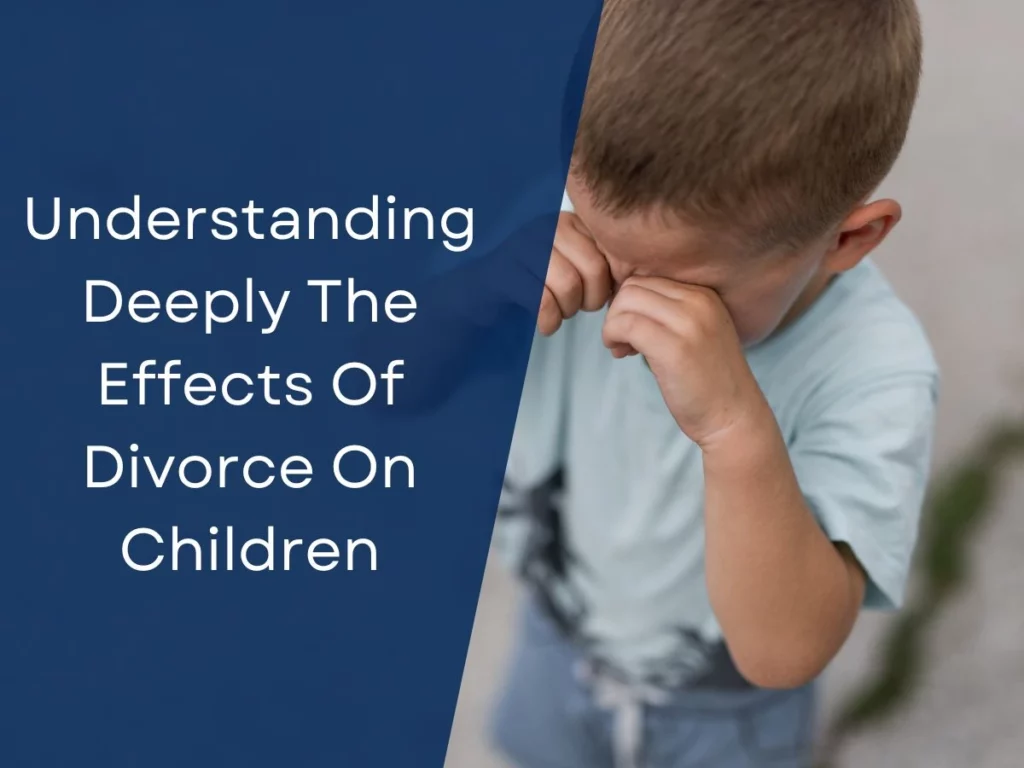My friend Rachel is smart, successful, and kind. She is a self-made woman and one of the nicest people I know. When you look at her, you would think that she came from a great family and had a good childhood.
That is not the case.
When Rachel was eight years old, her parents divorced. She ended up living with her mother, and she only saw her father twice in seven years. After going through a rough childhood, how did Rachel end up successful and happy, while others in her situation didn’t?
For the past several years in the United States alone, there have been 800,000 divorces and separations, with over one million children affected. How divorce affects children depends on many different variables.
Everyone has different backgrounds, unique needs, and wants. The interventions that take place after a divorce have a direct impact on how the divorce affects children.

How Divorce Affects Children
Scientists have widely studied how divorce affects children. Studies of divorced children across five countries show that children with divorced parents, compared with children living with both parents, have more conduct and emotional problems, and more problems with social relationships.
Furthermore, they have lower test scores and overall grades in school. Young Children and Adolescents react differently to divorce, showing different behaviors.
Why is it Important to Consider How Divorce Affects Children?
Divorce is very traumatic for young children and adolescents. This trauma has the potential to affect the children well into adulthood. If parents know the steps to take that will minimize the effects of divorce on their children, then they will be more likely to grow up into well-adjusted adults.
How Divorce Affects Children Into Adulthood
Studies on how divorce affects children long-term show that when children of divorce reach adulthood, they make less income, have less education, are more likely to have non-marital births, are at a higher risk for depression, and have poorer physical health.
Furthermore, these adults also see more problems in their own marriages.
The Most Important Effects Of Divorce On Children
Divorce affects children in many ways, but the following are the most important effects of divorce on children.
- The child may lose time with each parent
- The child may lose economic security
- The child may lose emotional security
- Decreased social and psychological maturity
- Cognitive and academic stimulation loss
How To Minimize The Effects Of Divorce On Children
Now that we know how divorce affects children, what are some ways we can minimize the effects?
- Spending equal time with both parents
- A strong mother-child relationship
- Financial support for the custodial parent
- Availability of consistent support systems
- A healthy relationship between both parents
Lessons Learned About How Divorce Affects Children
Divorce can have detrimental results in the well-being of children. The effects include less time with each parent, less economic and emotional security, decreased social and psychological maturity, and loss of cognitive and academic stimulation.
These effects may follow them well into adulthood, impacting many aspects of their lives.
If a child receives intervention during the divorce, they are more likely to have a healthier childhood. These interventions include a healthy relationship with both parents, the custodial parent giving healthy discipline to the child, financial support for the custodial parent, availability of consistent support systems, and a healthy relationship between the parents.
If the child has these interventions, they have the potential to grow into an adult who is successful, happy and well-adjusted. How divorce affects children falls on the early interventions that take place before the divorce can permanently impact the child.
